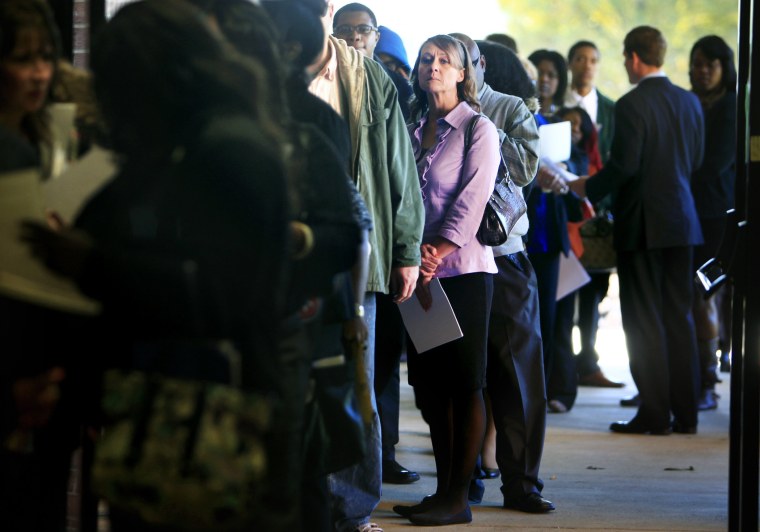In just 24 days, federal emergency unemployment benefits will expire for a whole lot of struggling Americans. Suzy Khimm calls it the "
unemployment cliff."
Since the beginning of the recession, seven states have cut their unemployment benefits to less than 26 weeks -- the prevailing standard since the 1950s. So far, emergency federal benefits have cushioned the blow of most of these cuts, kicking in after state benefits expire. But at the end of December, those federal benefits are scheduled to disappear as well, cutting off unemployment checks to 1.3 million jobless Americans and delivering a double whammy to states that have already reduced their benefit weeks to historic lows. In addition to the 1.3 million who would lose their benefits immediately, the expiration of federal benefits would affect 3.5 million more jobless Americans by the end of 2014. That's how many unemployed workers are still expected to be job-hunting after their state benefits expire, according to the Obama administration, which is pressing to continue the emergency federal aid as part of a year-end budget deal.
For congressional Democrats, the solution is fairly obvious: the parties are already engaged in budget talks, which have picked up a little steam of late, and there's no reason lawmakers can't boost the Emergency Unemployment Compensation program before the deadline.
Republicans controlling the House oppose a drive by Democrats to renew jobless benefits averaging less than $300 a week nationwide for the long-term unemployed, a senior GOP lawmaker said Tuesday. "I don't see much appetite on our side for continuing this extension of benefits," said Rep. Tom Cole, R-Okla. "I just don't."
Keep in mind, this isn't just about the fate of struggling Americans looking for work in a time of high unemployment, though the effects on them
would be severe. This is also about the economy overall -- the non-partisan Congressional Budget Office
reported yesterday that failing to extend benefits will cost the U.S. economy 200,000 jobs in 2014 (thanks to my colleague Robert Lyon for the heads-up).
Why would the job losses be so significant? Because as we've discussed many times, unemployment benefits are stimulative -- the jobless don't stick the funds in the bank; they spend the money. Take away the benefits, and the economy overall takes a hit.
It's not a done deal, and there's still time for Congress to act before the Dec. 28 deadline, but lawmakers concerned with creating jobs and helping those looking for work have an uphill climb ahead.
